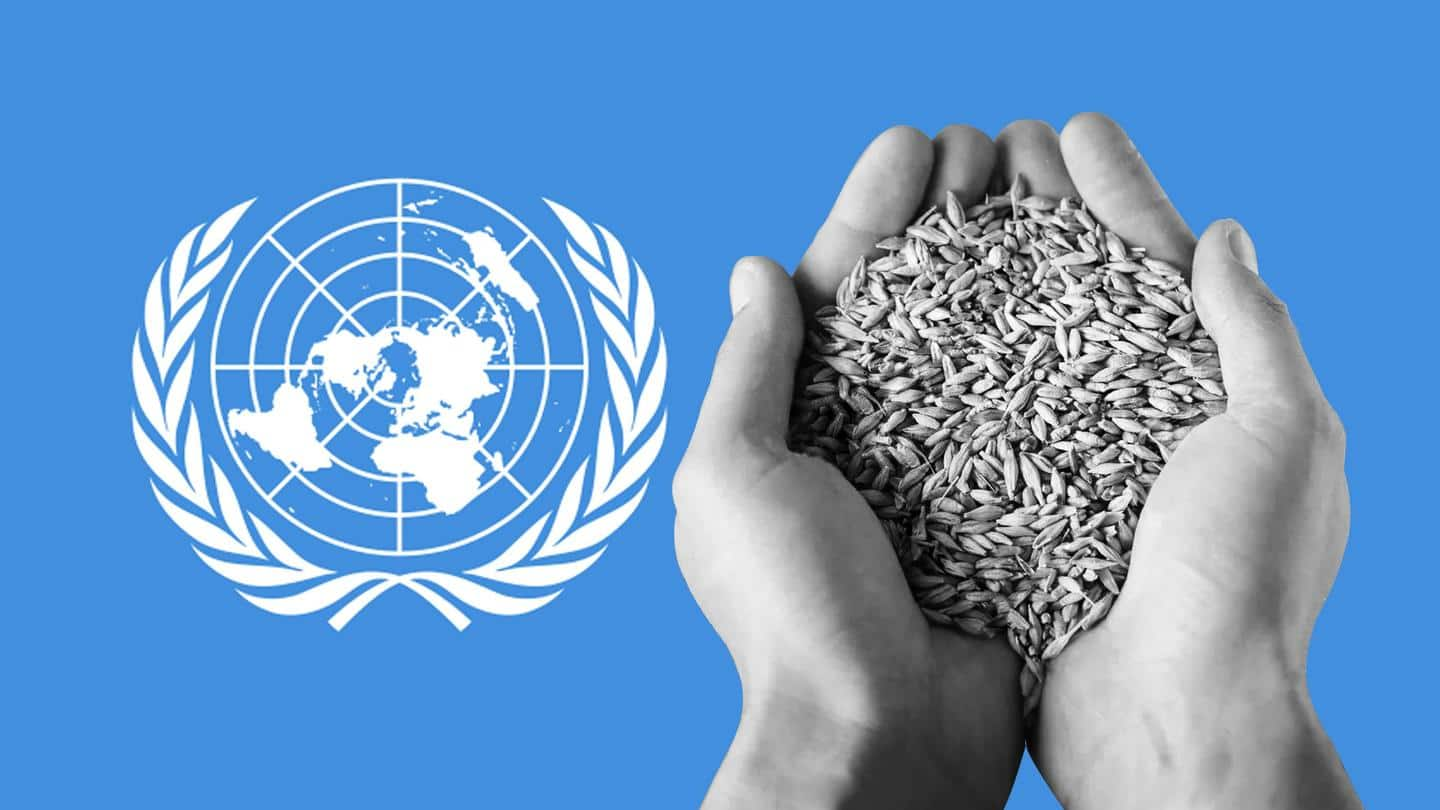
India defends wheat export ban at UN with COVID-19 barbs
What's the story
India on Wednesday defended its wheat export ban decision before the United Nations, claiming the move will actually aid poor and needy countries in crisis situations.
Taking a jibe at the West, the Minister of State for External Affairs V Muraleedharan warned the matter should not go the way of COVID-19 vaccinations, for which impoverished countries reportedly battled even to obtain the first dose.
Context
Why does this story matter?
The Centre prohibited all exports of wheat, including high-protein durum and normal soft bread varieties, with effect from Friday.
The move was a sudden "U-turn" from the Centre's just two-day-old decision to send official delegations to several countries to pitch Indian wheat exports.
The Centre has also come under severe criticism from several farm leaders over the decision.
Statement
What did the minister say at the UN?
"A number of low-income societies are today confronted with the twin challenges of rising costs and difficulty in access to food grains. Even those like India, which have adequate stocks, have seen an unjustified increase in food prices," Muraleedharan said, addressing a meeting.
"It is clear that hoarding and speculation are at work. We cannot allow this to pass unchallenged," he added.
Details
Ban order will help vulnerable countries: Muraleedharan
The minister stated that the decision to limit wheat export was made to manage the country's overall food security.
He went on to say that it will help neighboring and other vulnerable nations.
He was addressing a ministerial meeting on the "Global Food Security Call to Action," which was convened by the US Secretary of State Antony Blinken in New York.
Criticism
Minister's swipe at the West over COVID-19 vaccination
Muraleedharan also highlighted that India will properly help to increase global food security and maintain equality, compassion, and social justice.
He said the West ignored such principles during the COVID-19 vaccination, despite the fact that many individuals in poor countries struggle to even acquire the initial dose.
"Open markets must not become an argument to perpetuate inequity and promote discrimination," he added.
Information
Highlighting India's track record
Muraleedharan also emphasized India's past record of assisting its partners in need.
He noted that even in the midst of the COVID-19 pandemic and current wars such as the crisis in Ukraine, the country has never been found wanting.
India is keeping up with the ethos of "Vasudhaiva Kutumbakam" (the world is one family) and the "Neighborhood First" policy, the minister added.
Reason
What is the reason behind India's decision?
India is now the world's second-largest wheat producer, only after China.
Many countries were relying on India for wheat supply, particularly after shipments from the Black Sea area stopped following Russia's invasion of Ukraine in February.
The decision to restrict wheat follows the huge harvest misfortune due to the heatwave in India.
The country was also under pressure due to high inflation rates.
Market